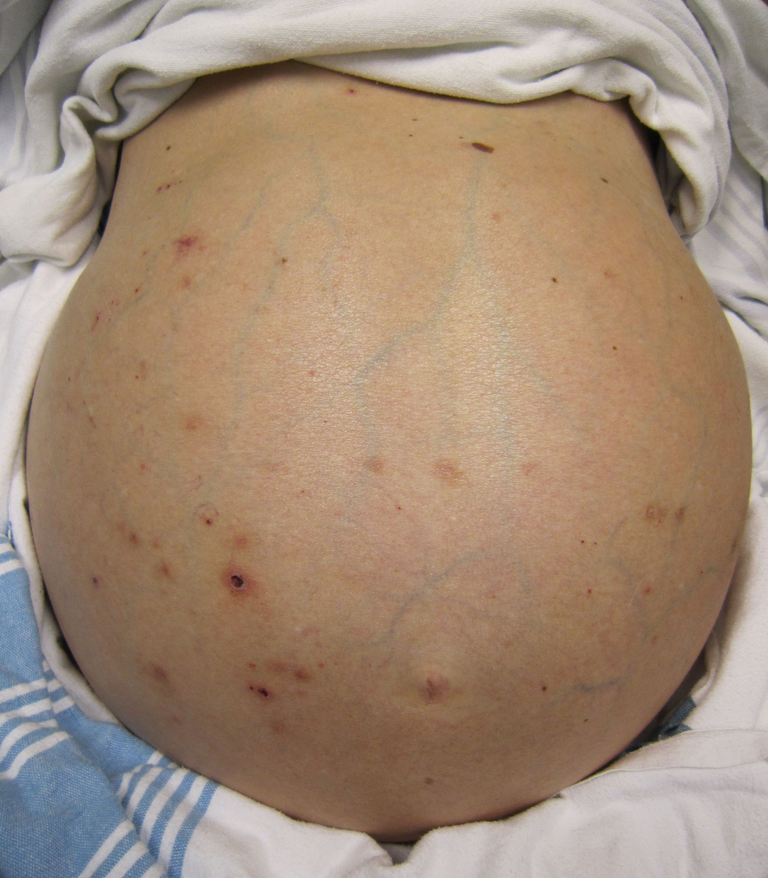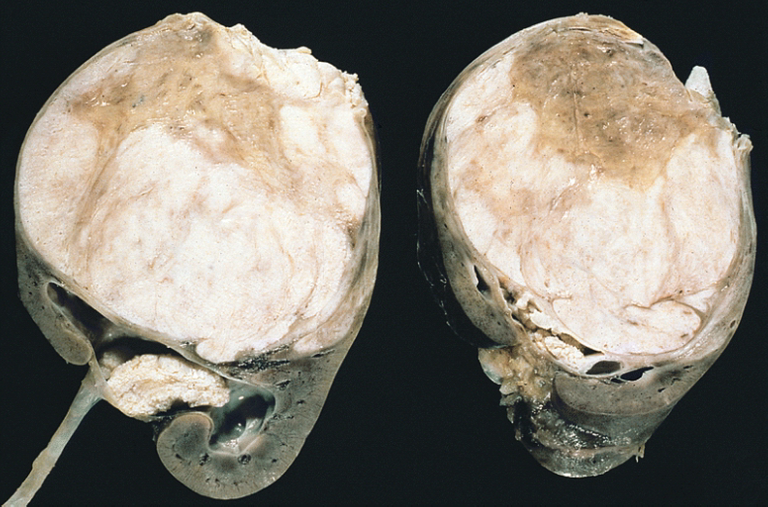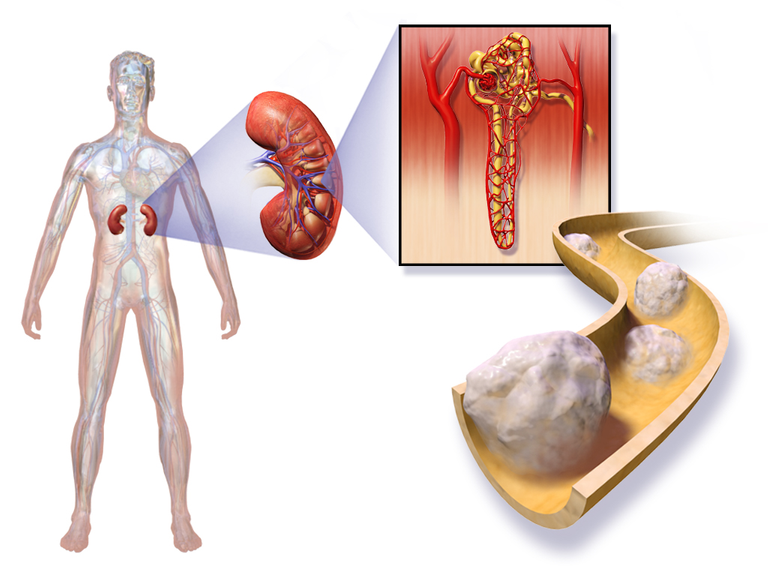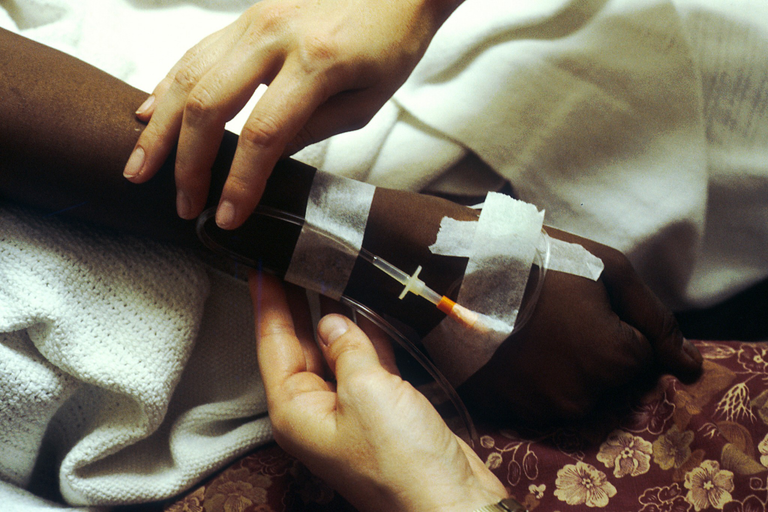WILMS TUMOUR (NEPHROBLASTOMA) - THE IMPORTANCE OF EARLY DIAGNOSIS AND PROMPT TREATMENT

By James Heilman, MD - Own work, CC BY-SA 3.0, Wikimedia
I work in the Haematology/Oncology unit in the Pediatrics department of the hospital where we treat and care for children with different forms of malignancies. Cancer is one of the global challenges, but it's really touching seeing these little ones battling with malignancies at a very tender age.
On Tuesday, we had a 4-year-old girl who presented with an advanced-stage Nephroblastoma (Wilms tumor). The parents and the medical team did everything possible but sadly the patient couldn't make it, not because nephroblastoma cannot be treated but because of the late presentation of the patient.
The triad of poverty, ignorance, and diseases has continued to pose a great challenge to health care in this part of the world. This constitutes the various delays in seeking medical care on time. The importance of early presentation cannot be over-emphasized. A very important aspect of the successful management of malignancies is early diagnosis and immediate treatment.
The patient above first developed some symptoms about 8 months ago. The child was taken to different herbal homes where a lot of herbal concoctions were given and scarification marks were all over the abdomen. All those even worsened the condition and by the time they came to the teaching hospital, she was already in respiratory distress due to the spread of the cancer to the lungs.
We did an abdominal ultrasound scan and chest x-ray amongst other investigations. The chest x-ray showed metastases to the lungs. There was pleural effusion and all. The early presentation would have addressed this disease at an early stage before it spread to other parts of the body.
So, in this post, I will discuss Nephroblastoma, the risk factors, and the treatment options.
WHAT IS NEPHROBLASTOMA?
Nephroblastoma also known as Wilms tumor is the commonest malignancy affecting the kidneys. It commonly affects children and the commonest age of manifestation is between the ages of 3 - 5 years. Though it can still occur in the older age group. Wilms tumor has also been found to occur more in blacks and commonly affects only one kidney, however, in some patients, both kidneys can be affected.

By The Armed Forces Institute of Pathology, Public Domain, Wikimedia
CAUSE OF NEPHROBLASTOMA
Like every other cancer, the exact cause of Wilms tumor is unknown. But it is said to occur due to some alterations in the genes responsible for the development of the kidneys and other structures in the urogenital tract.
The genes are molecules that control the growth and other activities of the cells. They signal the cells when to grow and also signal the cells when to stop growing. However, when there is an alteration in these genes, they will no more be able to signal the cells to stop growing. This leads to uncontrolled growth and proliferation of the cells which results in a tumor. In Wilms tumor, the cells of the kidney grow uncontrollably which results in the clinical signs and symptoms of the disease.
Some risk factors of this disease include a family history of Wilms tumor as well as other syndromes associated with Wilms tumor.
CLINICAL FEATURES OF WILMS TUMOUR
The commonest symptom of Nephroblastoma (Wilms tumor) is abdominal swelling/ abdominal mass. Due to the uncontrollable multiplication of the kidney cells, the kidney grows abnormally big which results in abdominal swelling/ abdominal mass. There may also be abdominal pain.
Another symptom is Hematuria (blood in the urine). This occurs from the invasion of the renal pelvis by the tumor. Patients with Wilms tumor also present with high or low blood pressure, but commonly high blood pressure. High blood pressure in Wilms tumor occurs due to the compression of the renal artery and retention of fluid in the body.
Anemia (low blood level) is also another symptom of Wilms tumor. The kidney secrets erythropoietin which is important in the production of red blood cells. Wilms tumor affects this function of the kidney as well as iron deficiency leads to anemia in patients with Wilms tumor.

By BruceBlaus - Own work, CC BY-SA 4.0, Wikimedia
Other symptoms of Wilms tumor include; Urinary tract infections, fever, lymph node enlargement, etc.
DIAGNOSIS AND TREATMENT
The diagnosis of a Wilms tumor is usually made through a good clinical history, physical examination, and relevant investigations. The relevant investigations here include; Histology, abdominal ultrasound scan, Chest x-ray, Serum electrolyte, urea and creatinine, Full blood count, etc.
The available treatment options for Wilms tumor are surgery, chemotherapy, and radiotherapy. The surgery here is the surgical removal of the affected kidney, especially in the early stage of the disease. This procedure is called nephrectomy and can be either a partial nephrectomy where just a part of the affected kidney is removed or a radical nephrectomy where the entire affected kidney is removed with the surrounding structures.
Chemotherapy involves the use of drugs to kill the tumor cells. The common drugs used here include vincristine, adriamycin, and cyclophosphamide. These drugs are effective in killing the tumor cells, however, they are associated with some side effects. The patients are usually monitored carefully with the appropriate investigations.

By Linda Bartlett (Photographer), Public Domain, Wikimedia
Radiotherapy is also a treatment option used to kill tumor cells. It uses high-velocity radiation to target the tumor cells while sparing the healthy cells. There are also associated side effects.
EARLY DIAGNOSIS AND PROMPT TREATMENT - THE SAVING GRACE FOR WILMS TUMOUR
We have looked at Wilms tumor, the causes, clinical presentation, and treatment options. Now, the important aspect of this discussion is the need for early diagnosis and prompt treatment of this disease.
So far, the general outcome of this disease has greatly improved. Currently, the cure rate is about 80-90%. However, children still die of Wilms tumor, especially in Africa.
The major cause of this death is not the absence of treatment options, but the various delays which lead to late diagnosis. Wilms tumor has various stages. In stage 1, the tumor is still contained within the capsule of the kidney. At this stage, this disease can be easily cured by surgical removal of the kidney. However, many patients don't present to the hospital at this stage.
In stage 2 of this disease, the tumor has spread to the nearby tissues and here, it is still easily curable surgically. In stage 3 of this disease, the tumor has affected other structures in the abdomen. At this stage, it is getting increasingly difficult to manage because surgical removal of the kidney does not take care of the other structures in the abdomen to which the tumor cells have spread to.
In stage 4 of the Wilms tumor, the tumor has spread through the blood to other distant organs like the lungs, the liver, the brain, etc. At this stage, the prognosis is always poor. This is the stage where the above patient presented. They were already metastases to the lungs and that contributed to the mortality.
The last stage of this disease is stage 5 where both kidneys are affected. This also has a very bad prognosis.
No child deserves to die of a Wilms tumor, especially with the improvement in the treatment options available for the disease. Therefore, symptoms of abdominal swelling, abdominal mass, abdominal pain, Hematuria, hypertension, anemia, and fever should be properly evaluated with a possible referral to an oncologist for early diagnosis and prompt treatment.
Together, we can save these children!
Thanks so much for reading. For further reading and references, please check the links below:
Thanks for your contribution to the STEMsocial community. Feel free to join us on discord to get to know the rest of us!
Please consider delegating to the @stemsocial account (85% of the curation rewards are returned).
Thanks for including @stemsocial as a beneficiary, which gives you stronger support.
Thanks so much @stemsocial . I greatly appreciate your support
Good health is the good to which we should all aspire. We must be alert to any sudden changes in our body and not delay in seeking information and help.
I knew a doctor who always advised us to save our health! And every day that advice becomes more valuable.
That's very correct. Health is wealth and we must pay special attention to our health at all times.